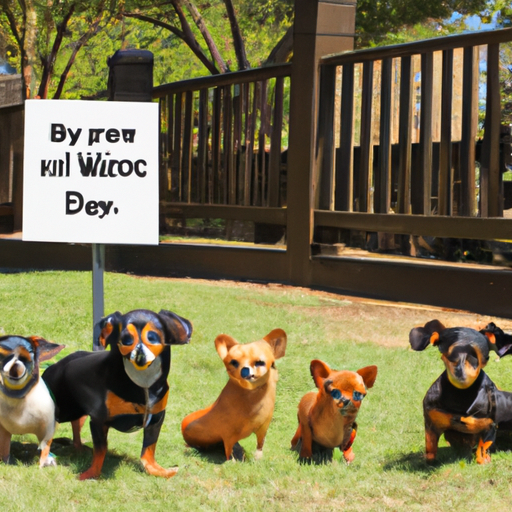As a caregiver, you’re naturally inclined to provide love and care for those you’re responsible for. Dogs are no different. They require just as much attention and care, if not more. But, what if you’re looking for a dog that stays small forever? Look no further. This guide is designed to help you find the perfect small-sized canine companion.
1. Understanding Small Dog Breeds
Small dog breeds are often referred to as ‘teacup’ or ‘toy’ breeds due to their diminutive size. But, they’re not just pint-sized pets. They’re full of personality, love, and a zest for life. Here’s a closer look at some of the most popular small dog breeds:
-
Yorkshire Terriers: These dogs are known for their long, silky coats and feisty personalities. Despite their small size, they’re great watchdogs.
-
Pugs: Pugs are friendly, affectionate dogs with a distinct, wrinkled face. They’re great for families and enjoy being around people.
-
Chihuahuas: These dogs are tiny but mighty. With their bold personalities, they’re sure to keep you entertained.
-
Maltese: These dogs are known for their beautiful white coats. They’re gentle, playful, and love to be pampered.
-
Shih Tzus: These dogs are known for their friendly and outgoing nature. They’re great for families with kids.
-
Pomeranians: These fluffy little dogs are lively and full of energy. They’re intelligent and easy to train.
2. Why Choose Small Dog Breeds?
Choosing a small dog breed has its benefits. Here are a few reasons why you might want to consider getting a small dog:
- Space: Small dogs are perfect for apartment living. They don’t require as much space as larger breeds.
- Maintenance: Small dogs generally require less food and exercise than larger dogs.
- Travel: Small dogs are easier to travel with. They fit easily in carriers and are more accepted in hotels and restaurants.
- Health: Small dogs often have a longer lifespan than larger breeds.
3. Caring for Small Dog Breeds
Small dogs may be easier to care for in some regards, but they have their unique needs. Here are a few tips on caring for your small dog:
- Feed them a balanced, nutritious diet.
- Regular exercise is important to keep them fit and healthy.
- Regular grooming is essential, especially for dogs with long coats.
- Small dogs may be more susceptible to cold weather, so make sure they’re warm and cozy.
- Regular vet check-ups are crucial to ensure they’re in good health.
4. Challenges of Owning Small Dogs
Despite their small size and adorable appearance, small dogs come with their own set of challenges:
- Training: Small dogs can be stubborn and can be more challenging to train.
- Socialization: Small dogs need plenty of socialization to prevent them from becoming overly protective or aggressive.
- Health issues: Small dogs can be prone to certain health issues like dental problems, obesity, and heart disease.
5. FAQs
Q1: Are small dogs good for first-time owners?
A: Yes, small dogs are often recommended for first-time owners due to their manageable size and lower maintenance needs.
Q2: Are small dogs good with kids?
A: It depends on the breed. Some small dogs are great with kids, while others may not tolerate them as well.
Q3: Do small dogs bark a lot?
A: Some small breeds are known to be more vocal than others. It can vary from dog to dog.
Q4: How long do small dogs live?
A: On average, small dogs live longer than larger breeds. They can live anywhere from 10 to 15 years, or even longer in some cases.
Q5: Are small dogs more prone to health problems?
A: Some small breeds may be more susceptible to certain health issues, but it can vary depending on the breed and individual dog.
Remember, choosing a dog is a big commitment. It’s important to do your research and find a breed that fits well with your lifestyle and personality. Happy dog hunting!



